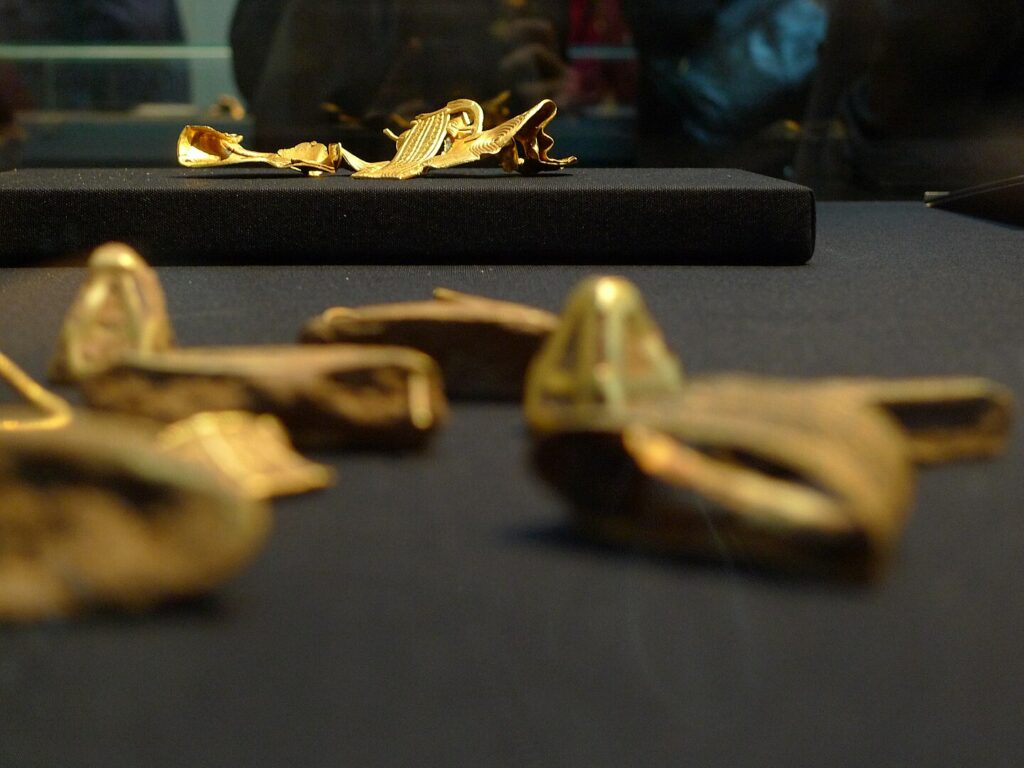Cursed Gold

An Anglo-Saxon king was caught in a cleft stick of expectation and necessity: to attract warriors to his warband, he had to distribute gold and gifts to his men. As the Staffordshire Hoard demonstrates, one of the main ways of acquiring this gold was by defeating enemies in battle.
But the constant need to acquire treasure led to further conflicts with more kings, inciting blood feuds and the sort of reckless hatred that must have fuelled the assassin King Cwichelm sent to kill Edwin: the unnamed assassin knew that, even if he succeeded, he was embarked on a suicide mission. That he was willing to die to kill Edwin suggests the assassin had reasons of personal vengeance to accept the commission of King Cwichelm.
The legends of cursed gold suggest an uneasy understanding on the part of the king’s bards and the warriors themselves of the price in hatred they paid for taking blood-wet treasure – and the likely consequence for themselves in taking it.
Very few of the kings of the sixth and seventh centuries died of natural causes. Even those who rose to the greatest power – Æthelfrith, Edwin, Oswald, Penda – were brought down by the turning of fortune or the alliance of enemies united by their hatred for the high king. In the warrior culture of the time, there was little way to disentangle gold lust and power politics, for the two were intertwined. The legends of cursed gold hint at the consequences of this fateful linkage.
0 Comments